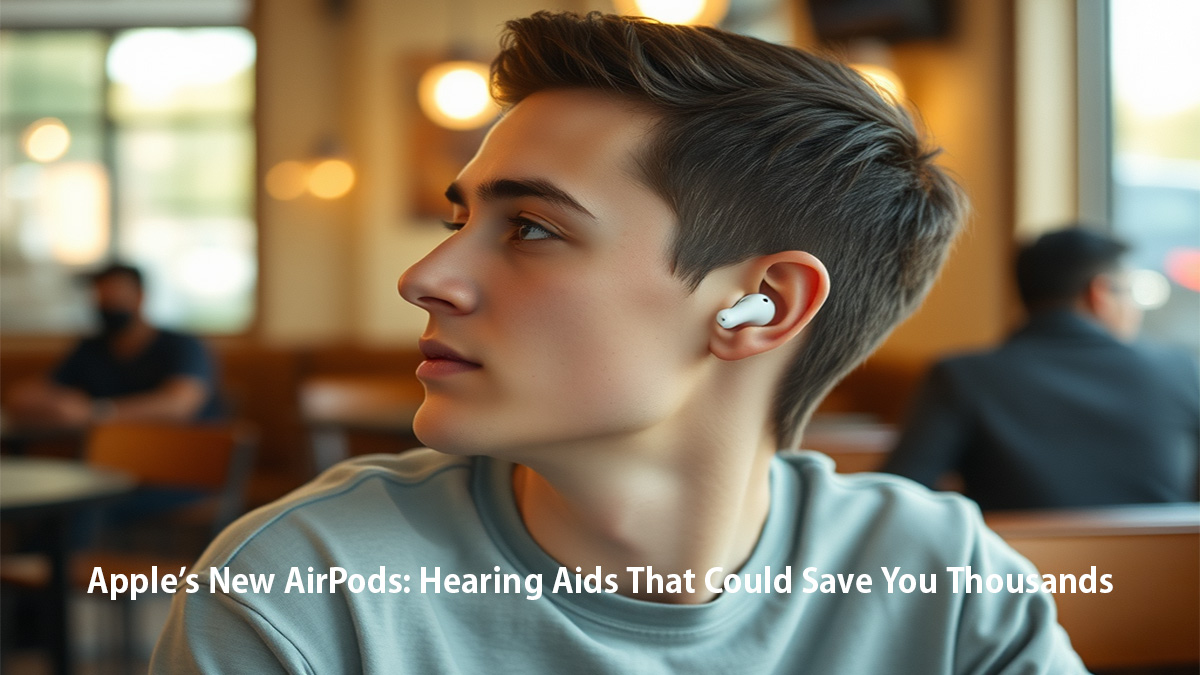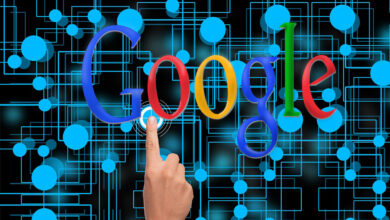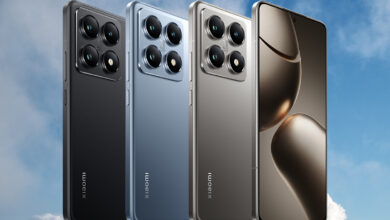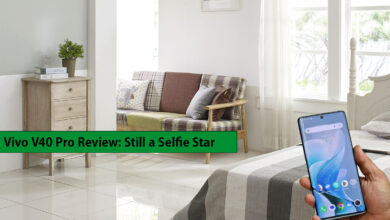Apple’s New AirPods: Hearing Aids That Could Save You Thousands

Apple has just taken a bold step in the world of healthcare technology. The latest AirPods Pro will now serve as clinical-grade hearing aids. This innovation could change lives, especially for the over 1 billion people experiencing mild to moderate hearing loss.
A Game-Changer for Hearing Loss
Sumbul Ahmad Desai, Apple’s vice president of health, emphasized the importance of this feature. “We’re adding this groundbreaking capability to help more than 1 billion people living with mild to moderate hearing loss.” This statement highlights Apple’s commitment to inclusivity and accessibility.
How It Works
The new AirPods Pro will enhance sound frequencies, making them clearer and more vibrant. Using advanced machine learning, these earbuds can adjust in real-time based on your environment. Whether you’re at a bustling café or in a quiet room, your listening experience will be tailored just for you.
Cost-Effective Solution
Traditional hearing aids can cost thousands of dollars. In contrast, Apple’s AirPods Pro offer a stylish alternative at a fraction of that price. This affordability opens doors for many who might otherwise go without necessary assistance.
More Than Just Style
While they look sleek and modern, the new AirPods are about more than aesthetics. They combine functionality with fashion, making them an attractive option for those who need hearing support without sacrificing style.
The Future of Healthcare Technology
Apple’s move signals a shift towards democratizing healthcare technology. By integrating medical capabilities into everyday devices like headphones, they are breaking down barriers to access. This could set a precedent for other tech companies to follow suit.
Apple’s Hearing Aid Feature: A Game Changer for Accessibility
On Thursday, the US Food and Drug Administration (FDA) made a significant move by authorizing Apple’s new hearing aid feature. This innovative technology will soon be available to AirPods Pro 2 owners through a software update. The rollout is set for this fall and will reach over 100 countries, including the United States, Germany, and Japan.
A Cost-Effective Solution
Prescription hearing aids can be prohibitively expensive, often costing thousands of dollars. In contrast, Apple’s AirPods Pro 2 are priced at just $249. This price point makes them an attractive option for many who experience hearing loss but may not have access to traditional devices.
What to Expect
The new feature aims to enhance sound quality and clarity for users with mild to moderate hearing loss. It leverages advanced audio technology found in AirPods Pro 2, providing a more immersive listening experience. Users can expect improved conversations in noisy environments and better overall sound perception.
Limitations to Consider
While this feature offers a more affordable alternative, it won’t work for everyone. Individuals with severe hearing loss may still require specialized devices tailored to their needs. It’s essential for users to consult with healthcare professionals before making any decisions.
The Future of Hearing Accessibility
Apple’s initiative marks a crucial step toward making hearing assistance more accessible. By integrating this feature into widely-used consumer technology, they are breaking down barriers that have long existed in the realm of auditory health.
In conclusion, Apple’s authorized hearing aid feature has the potential to change lives by offering a cost-effective solution for many experiencing hearing challenges. With its upcoming launch, we can look forward to a future where auditory accessibility is within everyone’s reach.
Apple’s Announcement Follows FDA Changes: A New Era for Hearing Aid Accessibility
Nearly 30 million adults in the U.S. experience some level of hearing loss. Surprisingly, only about one-fifth of these individuals seek help. The reasons? High costs and limited access to treatment options.
The FDA has highlighted a crucial point: untreated hearing loss can lead to cognitive decline and increase the risk of depression. Yet, many people remain unaware or unable to afford the necessary assistance.
In a significant move, Apple has stepped into this space following recent FDA changes. Two years ago, the FDA approved over-the-counter hearing aids, allowing those with mild to moderate hearing loss to purchase devices directly from stores or online—no doctor’s visit required.
Apple’s latest announcement introduces a groundbreaking feature for AirPods Pro 2 users. This innovation allows users to assess their hearing through a simple test that plays various tones. It’s designed to identify specific levels of hearing loss and tailor sound settings accordingly.
This shift is monumental for several reasons:
- Accessibility: With over-the-counter options now available, more people can access hearing aids without the burden of high medical fees.
- Convenience: AirPods Pro 2 users can manage their hearing health from home, making it easier than ever to seek assistance.
- Affordability: By cutting out middlemen, consumers may find better pricing on devices that were once prohibitively expensive.
As technology evolves, so do our approaches to health care. Apple’s commitment to enhancing user experience aligns perfectly with the FDA’s push for greater accessibility in hearing solutions.
This new feature could be a game-changer for millions who have struggled in silence. It’s not just about amplifying sound; it’s about improving quality of life.
For those facing challenges with hearing loss, this is an exciting time filled with possibilities. Embracing these advancements might just be the first step toward reclaiming lost sounds—and perhaps even reconnecting with loved ones in ways they thought were gone forever.
In conclusion, Apple’s announcement signals hope and progress in addressing a widespread issue that affects millions. The future looks brighter for those seeking help with their hearing health—one tone at a time.
The Future of Hearing: AirPods Pro as Personalized Hearing Aids
Imagine a world where your everyday earbuds transform into personalized hearing aids. With the latest advancements, that’s becoming a reality. After taking a hearing test, your AirPods Pro can be fine-tuned to amplify specific sounds you need—like conversations or environmental cues.
However, it’s essential to understand the limitations. Over-the-counter hearing aids, including Apple’s innovative solution, aren’t a one-size-fits-all remedy for everyone. According to the FDA, individuals under 18 must still obtain hearing aids through prescriptions. Moreover, those experiencing severe or profound hearing loss should seek professional advice rather than relying solely on consumer products.
Michelle Tarver, acting director of the FDA’s Center for Devices and Radiological Health, recently highlighted this breakthrough. She stated that this new software authorization enhances accessibility for adults with mild to moderate hearing loss. This is a significant step forward in making hearing support more available and acceptable.
Apple isn’t new to health technology. Their Apple Watch has already made waves by detecting irregular heart rhythms linked to serious conditions like AFib. Now, with the Apple Watch 10, users can also receive alerts about sleep apnea—a condition that disrupts breathing during sleep.
In summary, while AirPods Pro offer exciting possibilities for enhancing everyday listening experiences, they are not a substitute for professional medical advice or treatment for severe hearing issues. If you’re considering these innovations for your hearing needs, always consult with a healthcare professional first. Your ears deserve the best care!
High Hopes for Apple’s New Hearing Aid Feature
The recent announcement from Apple has sparked excitement and optimism in the hearing health community. Barbara Kelley, executive director of the Hearing Loss Association of America, expressed her enthusiasm: “This is what we wanted in the market.” After the FDA opened up over-the-counter options two years ago, many hoped tech giants would step in to innovate.
Kelley believes that Apple’s new feature could change perceptions around hearing loss. “There’s still a stigma attached to hearing loss coming with aging,” she noted. However, she sees potential in younger generations embracing technology. With elementary school kids sporting AirPods, if these devices can double as hearing aids, it could be a game-changer.
Social media buzzed with reactions from users. Many applauded Apple’s initiative, recognizing its potential to make hearing aids more accessible and less stigmatized. Yet, there are concerns that can’t be overlooked. Traditional hearing aids offer battery life that lasts days—an essential factor for daily wearers.
In summary, Apple’s entry into the hearing aid market brings hope for innovation and accessibility. It may encourage more people to prioritize their hearing health while challenging societal norms surrounding age-related hearing loss. As technology evolves, so too does our understanding of how it can improve lives—one sound at a time.






